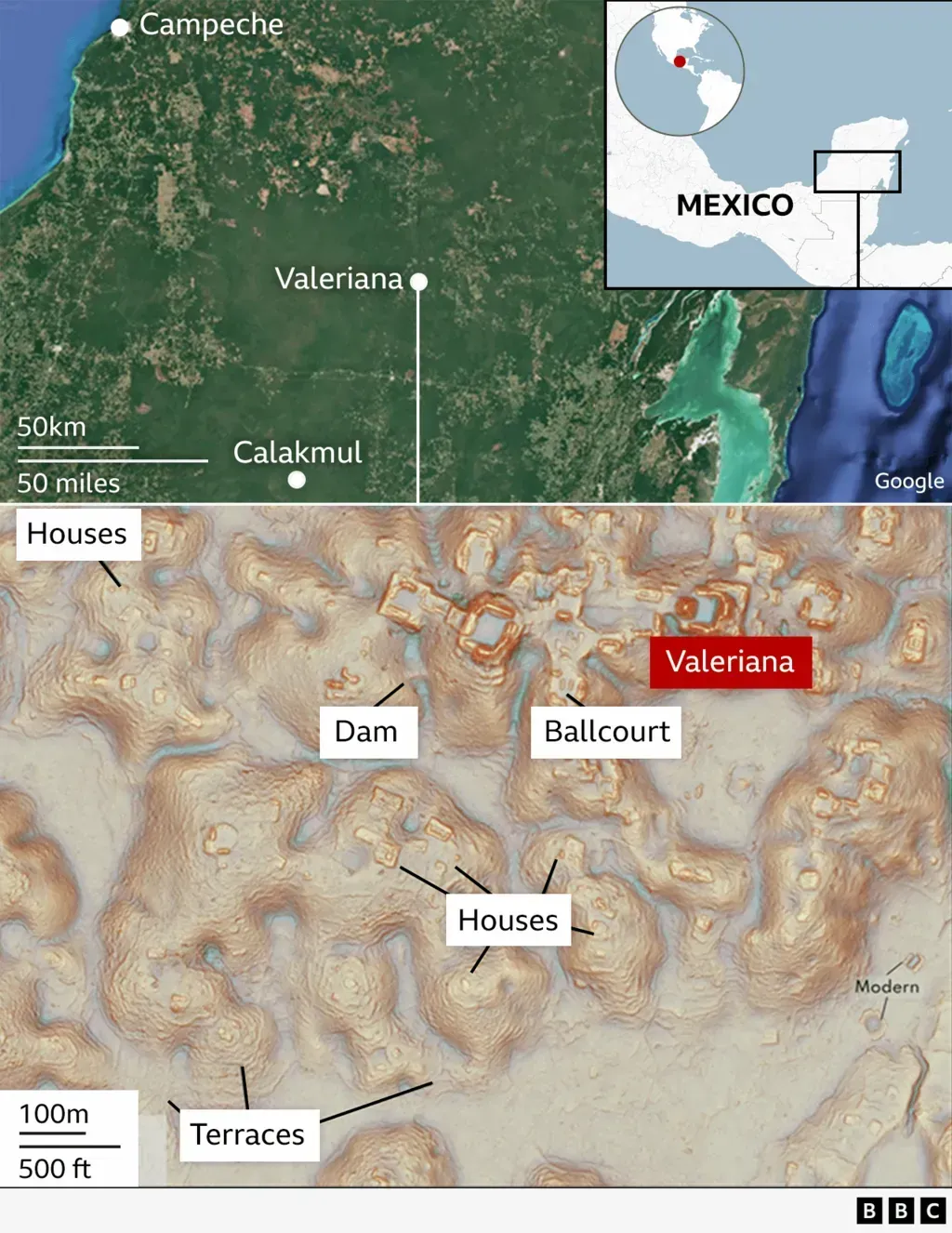Researcher accidentally finds lost city in the jungle of Mexico
Kyiv • UNN
The ancient Mayan city of Valerian was discovered in Mexico thanks to a random Google search and laser survey. The city could accommodate up to 50,000 inhabitants and was the second most dense after Calakmul.

A huge Mayan city has been discovered centuries after it disappeared under the jungle canopy in Mexico, UNN reports citing the BBC.
Details
Archaeologists have found pyramids, sports fields, dams connecting neighborhoods and amphitheaters in the southeastern state of Campeche.
They found the hidden complex, which they named Valeriana, using lidar, a type of laser survey that maps structures hidden under vegetation.
They believe that in terms of density it is second only to Calakmul, which is considered the largest Mayan settlement in ancient Latin America.
The team discovered a total of three sites "by accident" when one archaeologist was browsing the internet.
"I was on page 16 of a Google search and found a laser survey conducted by a Mexican environmental monitoring organization," explains Luke Old-Thomas, a graduate student at Tulane University in the United States.
When Old Thomas processed the data using the methods used by archaeologists, he saw what others had missed - a huge ancient city that, at its peak, could have been home to 30 to 50 thousand people from 750 to 850 AD.
This is more than the number of people living in the region today, researchers say.
Old Thomas and his colleagues named the city of Valerian after the nearby lagoon.
The finding helps to change the Western mindset that the tropics were a place where "civilizations died," says Professor Marcello Canuto, co-author of the study.
Instead, this part of the world was home to rich and complex cultures, he explains.
We can't be sure what led to the city's decline and eventual abandonment, but archaeologists say climate change was a major factor.
